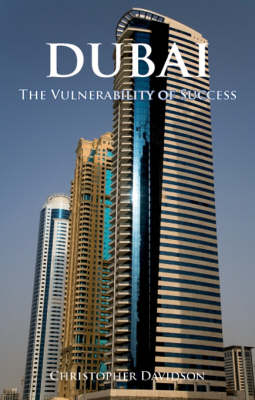Columbia/Hurst
3 total works
A plethora of economic, diplomatic, cultural, and other highly pragmatic linkages are making the AsianizationA" of Asia a reality. Davidson, demonstrates in this book how the powerful connections that are being forged by the very eastern and western extremities of the continent are poised to become a central pillar of this process. Most notably, an important new relationship is developing between the six monarchies of the Persian Gulf and the three most industrialized Asian economies. What began as a simple, twentieth century marriage of convenience based on hydrocarbon imports and exports has now evolved into a comprehensive, long-term mutual commitment that will not only continue to capitalize on the Persian Gulf's rich energy resources and Pacific Asia's massive energy needs, but will also seek to develop strong non-hydrocarbon bilateral trade, will facilitate sovereign wealth investments in both directions, and will provide lucrative opportunities for experienced Pacific Asian construction companies, and - in China's case - its vast labour force.
"Dubai" is a remarkable success story. From its origins as a small fishing and pearling community, the emirate has gone from strength to strength, having established itself as the premier trading entrepot of the Arabian Gulf and, in more recent years, having boomed into a massive metropolis of some two or more million people, most of whom are expatriates engaged in an increasingly diversified economy that has become synonymous with startling and innovative architecture. Following a detailed historical background, Davidson's in-depth study demonstrates how Dubai's pioneering post-oil development strategies were implemented against a carefully managed backdrop of near complete political stability, despite the lack of democratisation and genuine civil society.He then addresses the problems that may surface as the need for sustained foreign direct investment encourages far-reaching socio-economic reforms, many of which may affect the ideological, religious, and cultural legitimacy of the traditional monarchy.
He also analyses Dubai's awkward relationship with its federal partners in the United Arab Emirates, before highlighting some of the hidden costs of being the region's most successful free port - namely its attractiveness to international criminal fraternities, the global black money economy and terrorist networks.
He also analyses Dubai's awkward relationship with its federal partners in the United Arab Emirates, before highlighting some of the hidden costs of being the region's most successful free port - namely its attractiveness to international criminal fraternities, the global black money economy and terrorist networks.
A rising economic power, Abu Dhabi, the capital city of the United Arab Emirates, is poised to become a major player in the fortunes of both Third and First World countries. Abu Dhabi owns more than 8 percent of the world's oil reserves, has close to one trillion dollars to invest in sovereign wealth funds, and is about to implement a masterful set of economic initiatives that will yield even greater returns. Abu Dhabi has begun to eclipse its partner city, Dubai, in terms of sheer wealth and cultural and infrastructural development, opening the world's first Ferrari theme park and erecting satellite branches of the Guggenheim and the Louvre. Author of the best-selling Dubai: The Vulnerability of Success and an expert on Gulf politics, Christopher M. Davidson tracks Abu Dhabi's remarkable growth from a modest, eighteenth-century sheikhdom to its present opulent state. He recounts the dramatic efforts made by the emirate's dynastic family to retain their power, detailing the system of "tribal capitalism" they created in order to reconcile old political allegiances with modern engines of growth.
Davidson concludes with potential challenges to Abu Dhabi's political and economic success, including a weakening of civil society, invasive media censorship, an ongoing labor crisis, increasing federal unrest, and persistent underperformance in the education sector.
Davidson concludes with potential challenges to Abu Dhabi's political and economic success, including a weakening of civil society, invasive media censorship, an ongoing labor crisis, increasing federal unrest, and persistent underperformance in the education sector.

